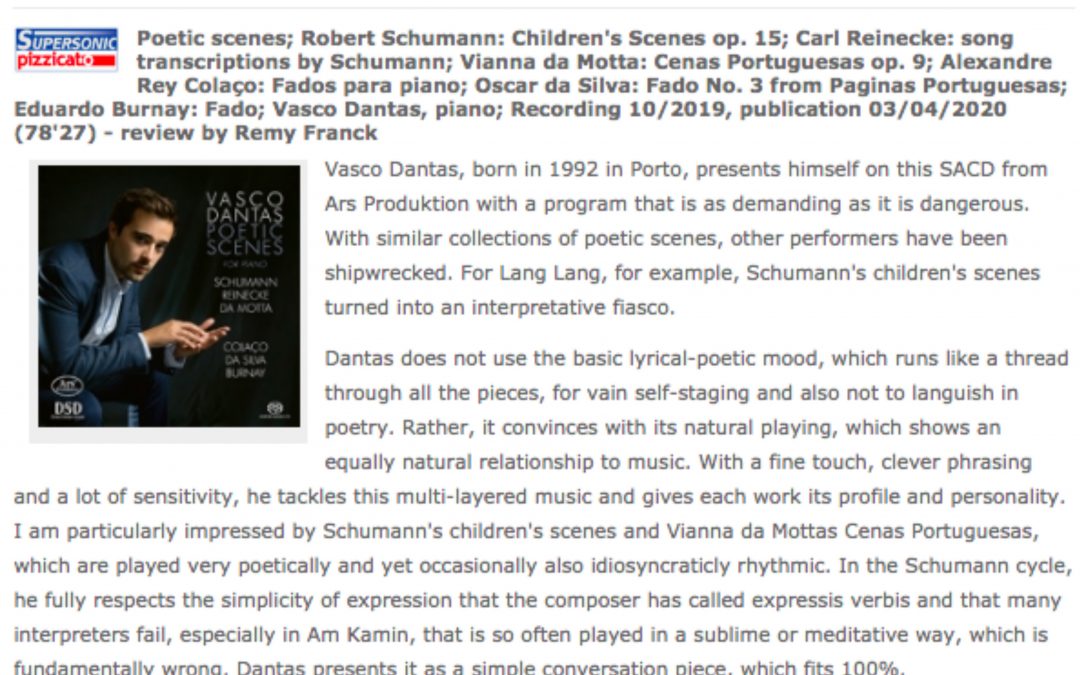Poetic scenes; Robert Schumann: Children’s Scenes op. 15; Carl Reinecke: song transcriptions by Schumann; Vianna da Motta: Cenas Portuguesas op. 9; Alexandre Rey Colaço: Fados para piano; Oscar da Silva: Fado No. 3 from Paginas Portuguesas; Eduardo Burnay: Fado; Vasco Dantas, piano; Recording 10/2019, publication 03/04/2020 (78’27) – review by Remy Franck
Vasco Dantas, born in 1992 in Porto, presents himself on this SACD from Ars Produktion with a program that is as demanding as it is dangerous. With similar collections of poetic scenes, other performers have been shipwrecked. For Lang Lang, for example, Schumann’s children’s scenes turned into an interpretative fiasco.
Dantas does not use the basic lyrical-poetic mood, which runs like a thread through all the pieces, for vain self-staging and also not to languish in poetry. Rather, it convinces with its natural playing, which shows an equally natural relationship to music. With a fine touch, clever phrasing and a lot of sensitivity, he tackles this multi-layered music and gives each work its profile and personality. I am particularly impressed by Schumann’s children’s scenes and Vianna da Mottas Cenas Portuguesas, which are played very poetically and yet occasionally also idiosyncraticly rhythmic. In the Schumann cycle, he fully respects the simplicity of expression that the composer has called expressis verbis and that many interpreters fail, especially in Am Kamin, that is so often played in a sublime or meditative way, which is fundamentally wrong. Dantas presents it as a simple conversation piece, which fits 100%.
The pianist’s sense of style is also exemplary in the fados. His warm interpretations refine the pieces without intellectuality or research through subtle, natural music-making, into which – as in the other works – a lot of poetry, but no emotional exuberance, is brought in. With this technically flawless game, rich in nuances, but above all very honest, Dantas speaks to the heart of the listener without the feeling that he is being harassed.
The surround sound recording by Manfred Schumacher has the same naturalness and can be described as perfect.

